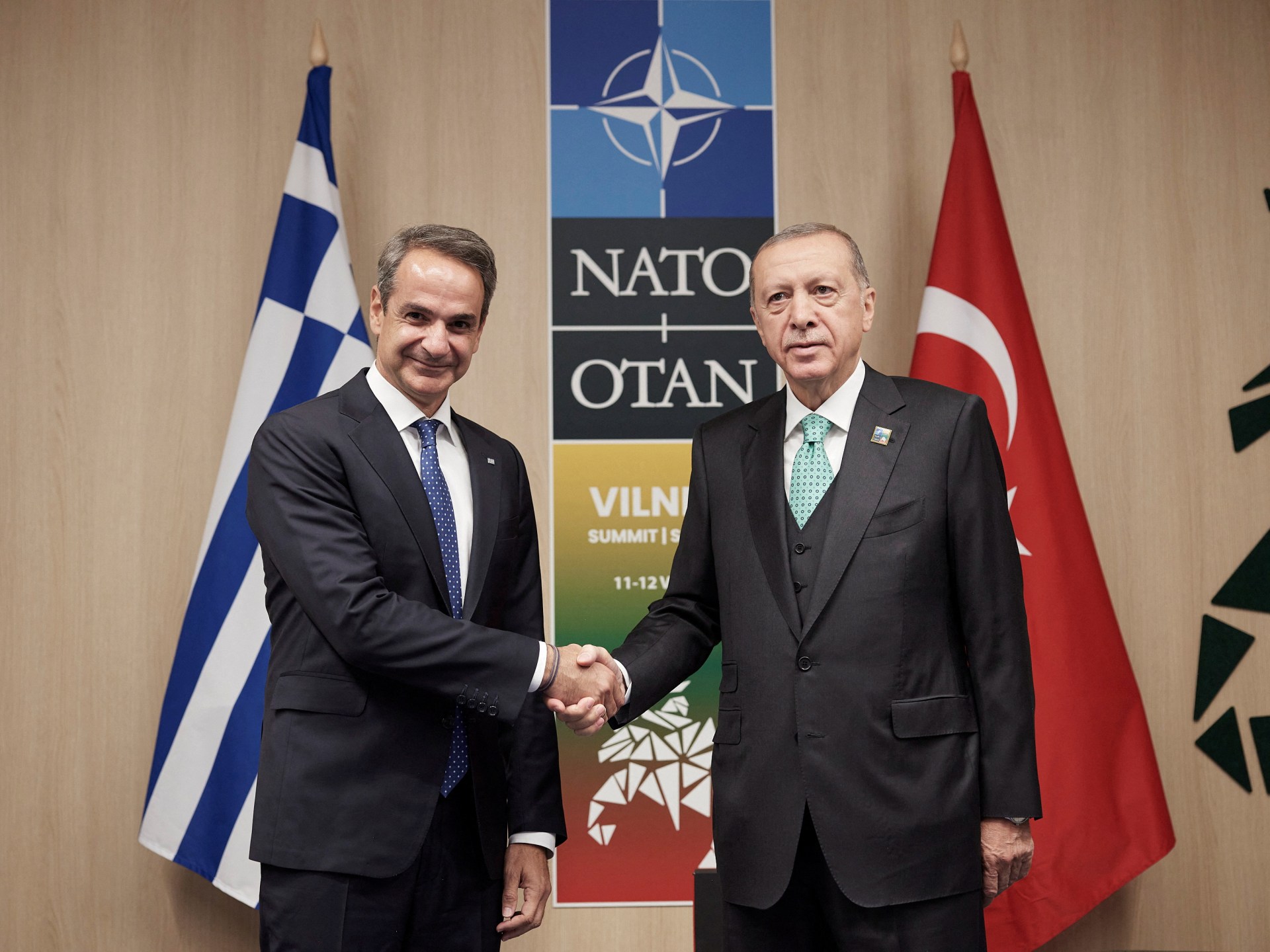Leaders of Turkey, Greece agree to restore ties
After decades of dispute over energy resources, the two recently re-elected leaders agreed to a positive climate.
The leaders of Greece and Turkey have agreed to resume talks and confidence-building measures as they hailed a new “positive climate” in their often fraught ties.
The two neighbouring countries have been at odds for decades over several issues, including energy resources, overflights above the Aegean Sea and ethnically split Cyprus.
On Wednesday, Greek Prime Minister Kyriakos Mitsotakis and Turkish President Recep Tayyip Erdogan, who were both recently re-elected, met on the sidelines of a NATO summit in Lithuania’s capital, Vilnius.
“It is to the benefit of both countries that the positive climate formed in bilateral relations over recent months has continuity and consistency,” the two leaders’ offices said in identical but separate statements.
“The two sides agreed to build on the positive momentum and activate multiple channels of communication between the two countries in the coming period,” added the statement, noting that the two leaders look forward to “more frequent contact at all levels”.
Cabinet ministers from the two sides are due to meet after the summer in the northern Greek city of Thessaloniki, Mitsotakis said.
“Our problems have not been magically resolved,” the Greek prime minister told reporters after the talks.
“But today’s meeting confirmed my intention and that of President Erdogan to reset Greek-Turkish relations.”
Last year, Erdogan halted bilateral talks in a dispute over airspace violations and accused Mitsotakis of pressuring the United States to block the sale of F-16 fighter jets to Ankara.
But relations between the two countries improved when Greece became one of the first to send rescue workers to Turkey after devastating earthquakes in February left 50,000 people dead.
Greece’s then-Foreign Minister Nikos Dendias was also the first European minister to visit Turkey after the quake.
“We have no strategic benefit in having Turkey at odds with the West, the EU and the United States,” Mitsotakis said on Wednesday.
He acknowledged that the earthquake cooperation “brought many changes in the psychology” of Greek-Turkish relations.
So-called earthquake diplomacy also came into play in 1999, when two deadly quakes struck Turkey and Greece within a month of each other.


